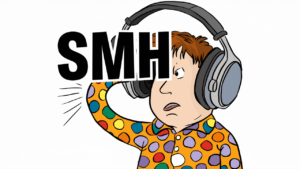Language often carries more than literal meaning—it carries emotion, culture, and history. Few words show this better than the Arabic word Habibi. Whether you’ve heard it in a love song, a movie, or from a friend, you probably wondered: What does Habibi mean?
This guide explores the true meaning of Habibi, its origins, how it’s used in everyday life, and why it has become a global cultural touchstone. We’ll break down its literal translation, explore variations like Habibti, and show how it appears in music, religion, slang, and even internet memes.
Habibi Meaning in Arabic
At its core, Habibi (حبيبي) means “my beloved,” “my love,” “my dear,” or “my darling.” It comes from the root word Habib (حبيب) which simply means beloved or dear one.
- Habibi is used when speaking to a male.
- Habibti (حبيبتي) is the feminine version, used when addressing a female.
This gender distinction is very important in Arabic grammar and cultural context. Native speakers instantly recognize whether the word is directed at a man or woman.
Everyday Usage in Arabic-Speaking Communities
In everyday conversations, Habibi isn’t limited to romance. It’s widely used among:
- Family members: Parents call their children “Habibi.”
- Friends: Men often use it to express platonic friendship or closeness.
- Romantic partners: Couples use it as an expression of affection, much like “darling” or “sweetheart.”
- Casual conversation: Even strangers or acquaintances may hear “Habibi” in a polite or warm interaction.
This makes Habibi a versatile Arabic term of endearment that works in multiple contexts—romantic, platonic, or familial.
Habibi Meaning in English
When translated into English, Habibi can take on several equivalents depending on tone and context.
| Arabic Word | Literal Translation | Common English Equivalent | Context |
|---|---|---|---|
| Habibi (حبيبي) | My beloved (male) | My dear, my love, buddy | Friends, romance, family |
| Habibti (حبيبتي) | My beloved (female) | Darling, sweetheart, honey | Romance, affection |
| Habib (حبيب) | Beloved/dear | Dear one, loved one | Neutral, formal, poetic |
In English, the closest equivalents are “my love,” “my dear,” “sweetheart,” or “darling.” But in casual speech, Arabs may also use it in a friendly sense, closer to “buddy” or “pal.”
This flexibility sometimes confuses English speakers who assume it’s always romantic, when in reality, it can just mean “dear friend.”
Variations and Phrases with Habibi
Several expressions use Habibi in combination with other Arabic words. Each one adds nuance and emotional depth.
Yalla Habibi Meaning
- Translation: “Come on, my love” or “Let’s go, dear.”
- Usage: Encouraging someone to hurry up, often used playfully among friends.
- Cultural Context: Popular in songs and everyday banter.
Wallah Habibi Meaning
- Translation: “I swear, my dear.”
- Usage: Expressing sincerity or honesty in a conversation.
- Cultural Note: “Wallah” (والله) literally means “By God.” Adding “Habibi” softens it with affection.
Ya Habibi Meaning
- Translation: “Oh, my love” or “Oh, my dear.”
- Tone: Emotional, dramatic, sometimes romantic.
- Example: Used in Arabic poetry and love songs to convey deep affection.
Shukran Habibi Meaning
- Translation: “Thank you, my dear.”
- Usage: A warm way to show gratitude while maintaining closeness.
Hamood Habibi Meaning
- Origin: A viral Arabic children’s song turned into a meme.
- Impact: Brought the phrase “Habibi” into global meme culture, especially on YouTube and TikTok.
Habibi Meaning in Different Languages & Cultures
Habibi Meaning in Hindi & Urdu
- In Hindi: “प्रिय” (priya) or “मेरे प्यारे” (mere pyaare) → “my dear / my beloved.”
- In Urdu: “میرے عزیز” (mere aziz) → “my beloved.”
Both cultures adopted Habibi through Bollywood songs, Pakistani dramas, and South Asian pop culture.
Habibi in Islamic Context
- Habibi is not a Quranic or religious term.
- However, it’s deeply embedded in Muslim culture as an expression of affection.
- Religious leaders often remind people not to confuse cultural expressions like Habibi with Islamic scripture.
- Example: Prophet Muhammad (peace be upon him) was referred to as Habib Allah (Beloved of God).
Habibi in Slang
- Among youth and on social media, “Habibi” has taken on a slang-like use.
- Non-Arabic speakers casually use it to mean “bro,” “mate,” or “dude.”
- Example: Rappers like Drake and A Boogie wit da Hoodie use it in songs to signal affection or coolness.
Habibi to a Girl vs. to a Boy
Arabic is very specific about gender. Using the wrong form changes the meaning:
| Word | Used For | Translation | Context |
|---|---|---|---|
| Habibi | Male | My dear/my love | Addressing men, boys, or male friends |
| Habibti | Female | My dear/my love | Addressing women, girls, or female friends |
- Calling a girl “Habibi” instead of “Habibti” sounds awkward and signals a non-native speaker mistake.
- In Arabic culture, using the right form shows respect and fluency.
Habibi in Popular Culture
Habibi has become a global cultural phenomenon, spreading far beyond the Arab world.
Music & Love Songs
- Famous Arabic songs like “Habibi Ya Nour El Ain” by Amr Diab brought the word worldwide fame.
- Western artists like Drake have dropped “Habibi” into their lyrics.
- Love songs often use Habibi alongside other Arabic terms of affection like Hayati (my life) or ya qalbi (my heart).
Social Media & Memes
- Platforms like TikTok, Instagram, and YouTube turned “Habibi” into a trend.
- Viral memes like Hamood Habibi gave it a playful, humorous angle.
Movies & TV
- Middle Eastern characters often use “Habibi” in film dialogues, showing its authentic cultural context.
Common Misconceptions About Habibi
- It’s not always romantic.
- You can call your child, friend, or sibling “Habibi.”
- It’s not exclusively Arabic.
- Variants exist in Hebrew and are understood in Persian, Turkish, Urdu, and Hindi.
- It doesn’t fit professional settings.
- Using “Habibi” in a business meeting can sound overly personal and unprofessional.
- It’s not only for Muslims.
- Habibi is cultural, not religious. It’s used by Arabs of all faiths, including Christians and Jews.
Expert Insights on Habibi
- Belal Elkadri, an Islamic education expert in Detroit, Michigan, explains: “Habibi carries deep warmth in Arabic-speaking families. It’s not limited to romance—it builds bonds of affection, intimacy, and cultural identity.”
- Annie Johnston, a wikiHow staff writer, notes that English speakers often over-romanticize the word, when in reality, Arabs use it daily in platonic friendship and family affection.
- Organizations like The Family Youth Institute, Celebrate Mercy, Sabr App, Muslim Enrichment Project, and MUHSEN have all highlighted how Arabic expressions of affection like Habibi reinforce strong community and family ties.
Other Arabic Terms of Endearment
Arabic is rich in expressions of love and affection. Alongside Habibi, here are some other beautiful terms:
| Arabic Term | Meaning in English | Usage |
|---|---|---|
| Hobbi (حبي) | My love | Romantic partner |
| Ya qalbi (يا قلبي) | My heart | Deep affection, romantic or familial |
| Hayati (حياتي) | My life | Intimate, romantic |
| Ya ruHi (يا روحي) | My soul | Intense love, romantic |
| ˁayuni (عيوني) | My eyes | Intimate, family or partner |
| Ya sanadi (يا سندي) | My backbone | Strong support, close relationship |
| Ya qamar (يا قمر) | Moon | Romantic compliment |
| ˁazizi / ˁazizati (عزيزي/عزيزتي) | My treasure | Respectful or affectionate |
| Ya Helo/Helwa (يا حلو/حلوى) | Sweet one | Playful or romantic |
| Ya ˁasal (يا عسل) | Honey | Cute, affectionate |
| Ya fo‘aadi (يا فؤادي) | My heart | Poetic, romantic |
These words often appear in Arabic poetry, literature, and love songs, making them central to expressions of affection & intimacy.
FAQs About Habibi
Can you say Habibi to strangers?
Yes, in casual contexts. In Arab culture, a shopkeeper might call a customer “Habibi” as a warm gesture.
Is Habibi offensive?
No. It’s affectionate. However, in a professional setting, it may come across as too informal.
What’s the difference between Habibi and Habibti?
- Habibi = male addressee
- Habibti = female addressee
Why do Arabs use Habibi so often?
Because it’s a universal term of affection that suits many contexts—family, friends, romance, or casual politeness.
Conclusion
The word Habibi is much more than a simple translation of “my love” or “my dear.” It’s a window into Arabic culture, showing how affection can be expressed across family bonds, friendships, and romantic relationships.
From Arabic poetry and love songs to social media memes and global slang, Habibi has transformed into a worldwide symbol of love and connection.
So next time you hear “Habibi” in a song or conversation, remember: it’s not just a word—it’s an expression of affection that carries centuries of cultural depth.



